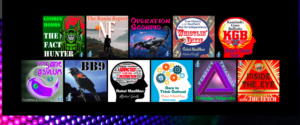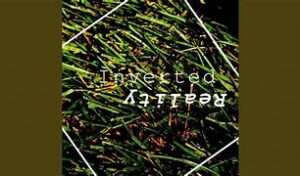
The slanted French newspaper Le Monde announces the death of Ernst Zündel
By Robert FAURISSON
August 14, 2017

In its edition of Saturday, August 12, Le Monde published a long, two-column article by Thomas Wieder, a journalist whose devotion to the “Shoah” cult is well known. Entitled “Ernst Zündel, Holocaust denial publisher” and adorned with a photograph of the deceased, who died on August 5, its tone is set by the first two sentences:
The French Holocaust denier Robert Faurisson called him “dear friend”, considered him a “source of inspiration”, and said that he was “the man he admired most”. German publisher and pamphleteer Ernst Zündel, convicted several times for anti-Semitic propaganda and a Holocaust denier, died on Saturday, August 5 in Bade Wildbad in the Baden-Württemberg region, where he was born 78 years ago.
Two birds with one stone: Zündel and Faurisson were, as is seen, nothing but “deniers”. They denied. We shall understand by this that, apparently, they devoted their existence to denying the obvious. What, exactly, was obvious? Follow the gaze of Louis Dreyfus, Jérôme Fenoglio and Luc Bronner, who today preside over the destiny of Le Monde. Their newspaper does not know how to repair the “monumental blunder” it committed back in 1978. December 29, 1978 was, as they say, “The day Le Monde published Mr. Faurisson’s feature [on ‘the problem of the gas chambers’]” (the subject of an article by their “grand reporter” Ariane Chemin on August 20, 2012, reproduced in the book Le Monde, 70 ans d’histoire, Flammarion, 2014, 496 p.; p. 469-470).
Throughout Wieder’s article Zündel is described, either directly or by way of insinuation, as a pamphleteer, a propagandist, an unconditional Nazi, a “murderer of [Jewish] remembrance”, a pervert, a provocateur, a coward. In 1958 he had emigrated to Canada “to avoid being called to serve in the armed forces” of the Federal Republic of Germany. In Toronto, at his two great trials in 1985 and 1988, he had not been loath “to appear in court in a bulletproof vest, wearing a helmet with ‘freedom of speech’ written on it”. At the 1985 trial the “Holocaust denier” Faurisson had figured among his “witnesses”.
In fact, if my friend Ernst had emigrated to Canada at the age of 20, it was not in the least out of cowardice but rather out of disgust with war and things military. At that age he still lent full credence to what was peddled about on the “Nazi horrors” and on the essentially militaristic and criminal past of his homeland. He had thus become a pacifist, and would remain so all his life. In Canada there was no conscription, hence his choice of that country. Afterwards, he read, read very much, and ended up believing he must acknowledge that revisionist authors were right. He then became indignant that, during the two world wars, the Allies’ propaganda had been able to invent such lies about the “Boches” or the “Nazis”. If he showed up at his first trial in a helmet (and let’s specify: a construction site helmet!) and asked his companions to do the same, it was because of the several assaults and attempts on his life perpetrated by his opponents either with open force or more sneakily. Most of the time, as in France, the police or the guards on duty refused to protect “Nazis” (sic). From this standpoint, Ernst Zündel’s existence was an ordeal.
An arson attack devastated his house and a large part of the rich documentation needed for his defence. An explosive device was once sent to him through the mail: he had the good idea of handing it over to the police, who carried out a controlled detonation. Was I his “witness”? No: in the courts, I was the expert admitted to assist his barrister, the admirable Douglas Christie.

In English-speaking countries, in order to be designated as a court expert one must obligatorily undergo an arduous test before the judge, the jury, the prosecutor and the opposing counsel, who may intervene at any time: one must be able to show not only that one knows about a given subject (here, the history of the European Jews, particularly in the period from 1939 to 1945), but also that one can express oneself in a language plain enough for the simplest juror. Those two trials (that of 1985 lasted seven weeks, the one in 1988 a bit longer than four months) were a triumph for the revisionist cause and a disaster for the cause of Zündel’s opponents. Their official transcripts attest to this fact. In 1985, for example, Professor Raul Hilberg, the prime historian supporting the thesis of the “destruction of the European Jews”, suffered such a humiliation that he refused to appear at the 1988 trial, which proved even worse for the thesis defended by the Jewish organisations’ leaders (see my foreword to Barbara Kulaszka’s Did Six Million Really Die? Report of the Evidence in the Canadian “False News” Trial of Ernst Zündel – 1988, July 24, 1992).
Just like me, Zündel had respect for the true sufferings of the Jewish people. A man with a remarkably open mind and great insight, he had the ability to judge a person independently of the group to which he or she might belong. His enemies, prodigiously richer and more powerful than himself, were those Jewish or Zionist organisations that claimed to defend the Jews’ interests by waging a merciless war against revisionists. On the one hand, he was not lacking in Jewish friends and, on the other, he did not lose sight of the fact that some of his opponents could well be of good faith. Taking, for example, their belief in the figure of Six Million Jewish victims of Hitler, he noted that, from the second half of the nineteenth century (yes, from the 1860’s!), American newspapers, the New York Times at their head, had published numerous press releases from Jewish organisations reporting “At this moment, a dreadful massacre or pogrom of Jews is taking place in Europe [in Russia, Poland, Hungary, etc.]. Six million of our brothers and sisters are dying; your financial contribution is awaited”. When, in 1933, Hitler entered the scene and when “all Jewry declared war on him” (“Judea declares war on Germany”) – still more, of course, from September 1939 onwards –, the war drums beat the same slogan. In this regard, who can be surprised if millions of Jews of the time, accustomed for several generations to hearing it repeated that “Six million of our brothers and sisters are dying”, were able to believe that that was the truth? But it was a brazen lie. In 1946, at the Nuremberg trial, the judges, making their own contribution to this lie, attributed its invention to Adolf Eichmann himself (see, in my piece The Victories of Revisionism (continued) dated September 11, 2011, the section “The imposture of the Six Million. Wilhelm Höttl and the Nuremberg tribunal unmasked”).
I knew Ernst Zündel well. It so happens that on the eve of his death I telephoned him. In a long conversation, in which he shared some confidences that I shall perhaps reveal one day, I found a broken man, in despair on learning of the inexorable decision by a senior Jewish official in Washington to forbid him any access to US territory, thus any possibility of returning to the home of his wife, herself seriously ill. I first received the news of his death with a sense of relief. Two days later I thought of the friend I had lost and of his torturers, of the two years of solitary confinement in a Toronto prison in abominable conditions, then of his handing over to the German authorities, his conviction, in Mannheim, to a further five years’ imprisonment. I recalled a hundred details of the times spent with a man who was exceptional in his kindness, his humanity, his intelligence, his thoughtfulness at every instant for our companions in struggle, his good sense, his steadfastness, his moderation, his practicality.
Recently, in a homage to the man who, unbeknownst to all, was at death’s door, I wrote that throughout my trying existence I had, despite all, the satisfaction of having met at least one genius, Arthur Robert Butz, and at least one hero, Ernst Zündel, a peaceful hero, forever determined to fight against warmongering, war and its lies.
For the moment, I request to be allowed to leave things at that, at least for today. I must urgently retake my place aboard the revisionist galley, alongside other galley slaves equally resolved to row through the storm until death arrives. I must take as my example that hero who, even when broken, persisted in signing his letters “E. Zündel, unbowed”.
Note: I recommend a long obituary of Ernst Zündel written by the black American columnist Jonas E. Alexis on for the site Veterans Today (August 7). The comments also deserve a read.





